A freshly transplanted Black pine. From our Masters' Series Pine book.
When it comes to transplanting, timing depends on your climate. Here in northern Vermont seasons can change rapidly and winters are very cold. If you live in a warmer climate fall comes later for you and there is more margin for error.
One advantage to transplanting in the early fall is when the spring season starts, little or no growing time is lost. Roots grow in the fall when the soil is still warm and after diminished light and cool nights have shut top growth down. By the time the soil becomes too cold, the roots have recovered. When spring finally arrives, top growth should be vigorous.
Continued below…
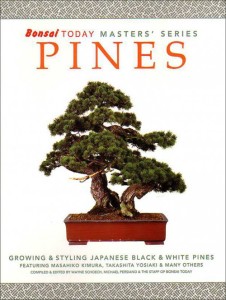
Here's our aforementioned Pine Book our Big Book Sale ends tonight today is a good time to fill out you bonsai book collection
There are a couple caveats however:
First, it’s usually best to avoid transplanting deciduous and tropical trees in the fall. Unless you live in a very forgiving climate or you’ve got a magic touch.
Second, heavy root pruning is best saved for the spring. If cold weather sets in too soon before the roots have recovered, winter survival can be threatened. If you live where the winters are very cold, better stick to light root pruning in the fall .
Don’t wait too long, especially if you live where seasonal changes can happens quickly. Here in northern Vermont, we’ve had the best results from the last few days of August to the around the 10th of September (our first hard frost can happen any time from mid-September to early October, though there’s almost always several weeks of mild weather after that, which helps keep the soil warm enough for roots to recover).
Continued below…
Two useful transplanting aids. Myconox helps replace the all-important mycorrhizal fungi, and Dyna-Gro K-L-N is a rooting compound that is formulated to reduce stress and encourage root growth.
The photos and some of the text used here are from a post we did in August 2015, with the same title: Fall Transplanting: Timing and a Light Touch.
Continued below…
Pieces of the pie. From Bonsai Today issue 39.
Keeping some roots undisturbed
The technique shown here is particularly good if you want to replenish the soil while leaving some of the roots undisturbed. Doing this lessens stress and hastens recovery.
Pot sizes and shapes
This technique is also useful if you want to move a tree from a larger to a smaller pot, or into a pot that has a different shape. It also works when you want to replenish some of the soil and then put the tree back into the same pot and is particularly useful for repotting forest plantings.
Pot-bound trees
This technique only works with pot-bound trees. If the roots aren’t well enough established to hold the soil together when you take the tree out of the pot, this technique won’t work.
Before. A Satsuki azalea in the wrong pot.
Cutting corners. Because you’re going from a rectangular pot to a round pot, you start by cutting off the corners.
Removing the bottom roots. With pot-bound trees you want to remove some of the lower roots. This encourages roots to spread out rather than grow down; because the tree mirrors the roots, it encourage the above ground growth to spread, rather than shoot straight up. Another reason to remove the bottom roots is to make more space to replenish the soil.
After. The tree looks much better in this pot and healthy new roots can grow into the fresh soil. All you need now is water and a light application of gentle, slow-release Green Dream fertilizer to enrich the soil for the new root growth (many people discourage fertilizing right after transplanting, but with a light application of a mild slow-release fertilizer, there's no risk).
25% off Bonsai Book Sale ends tonight

25% off Bonsai Books & DVDs
this sale ends tonight, Wednesday, August 31st at 11:59pm
plus an extra 10% off all orders 100.00 or more
FREE Shipping on U.S. orders 49.00+
and New lower shipping rates to Canada & overseas

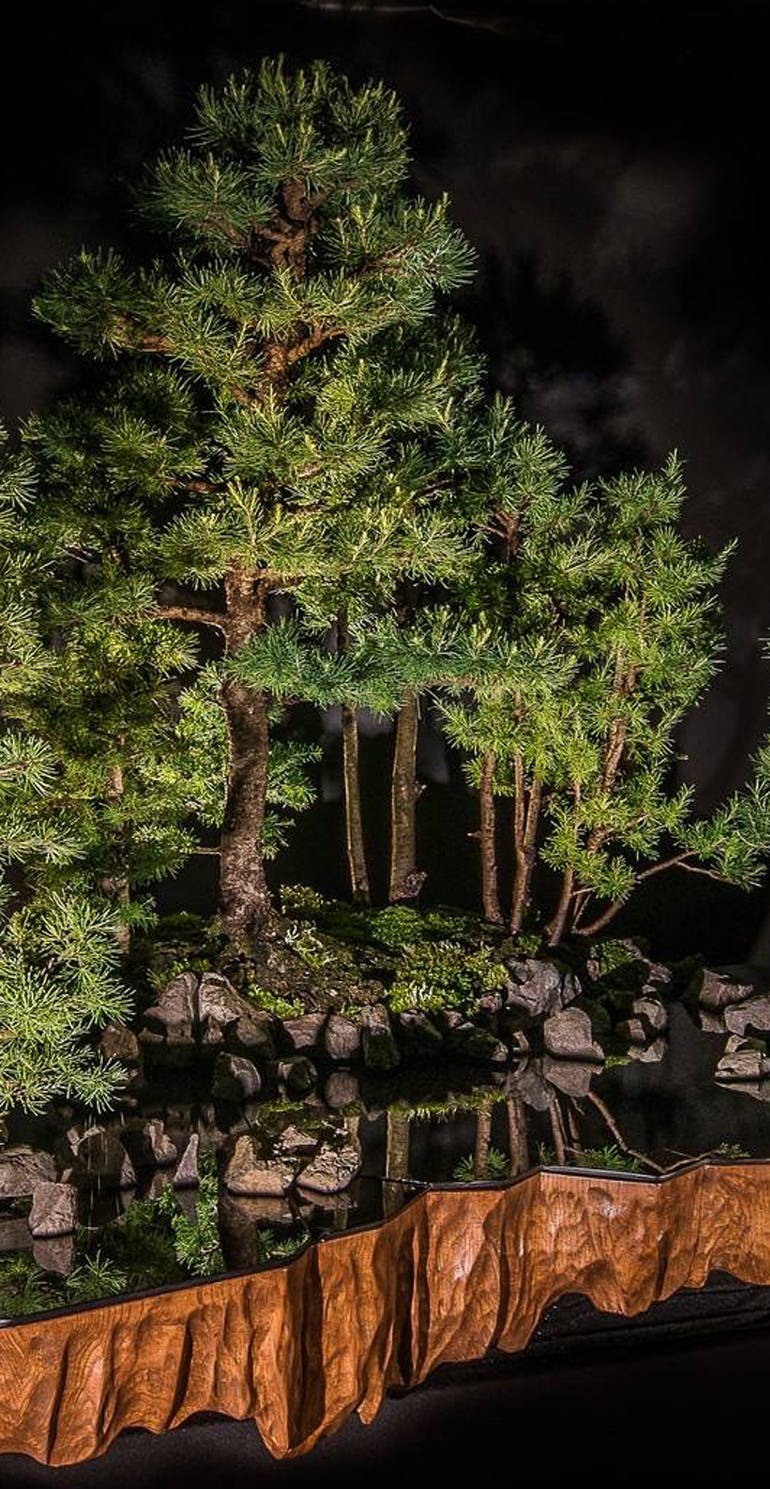
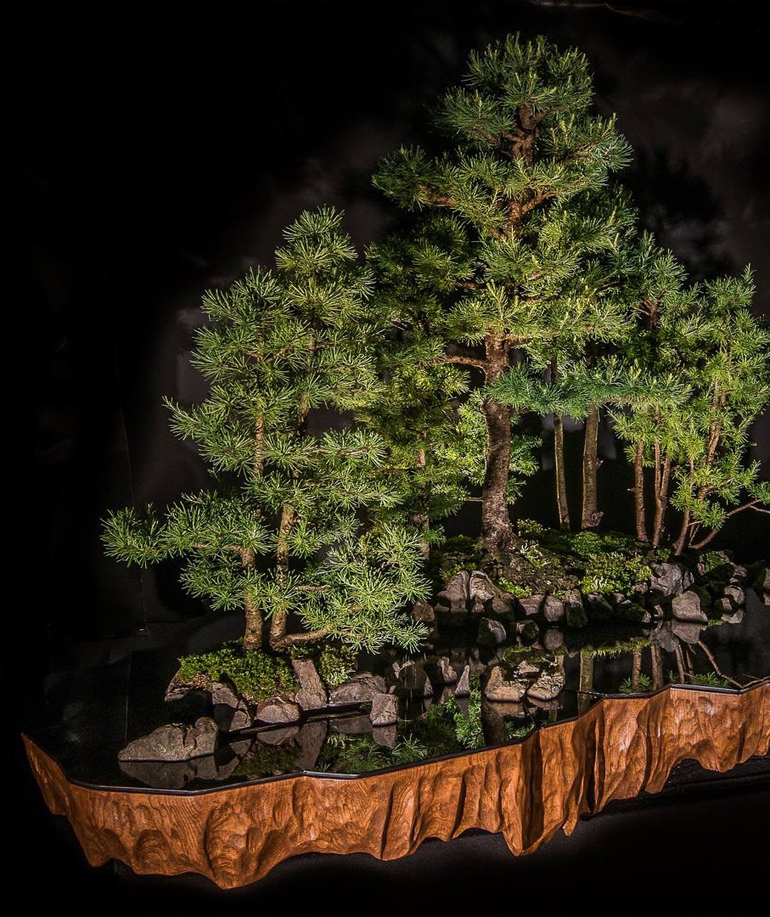
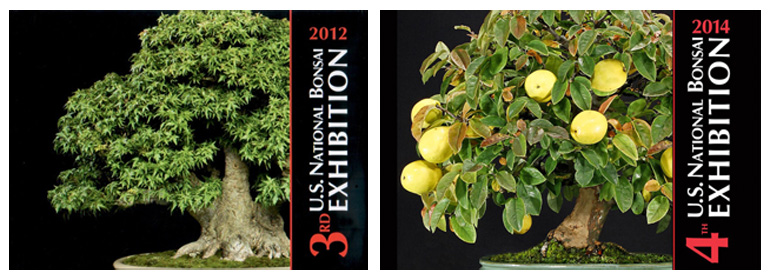
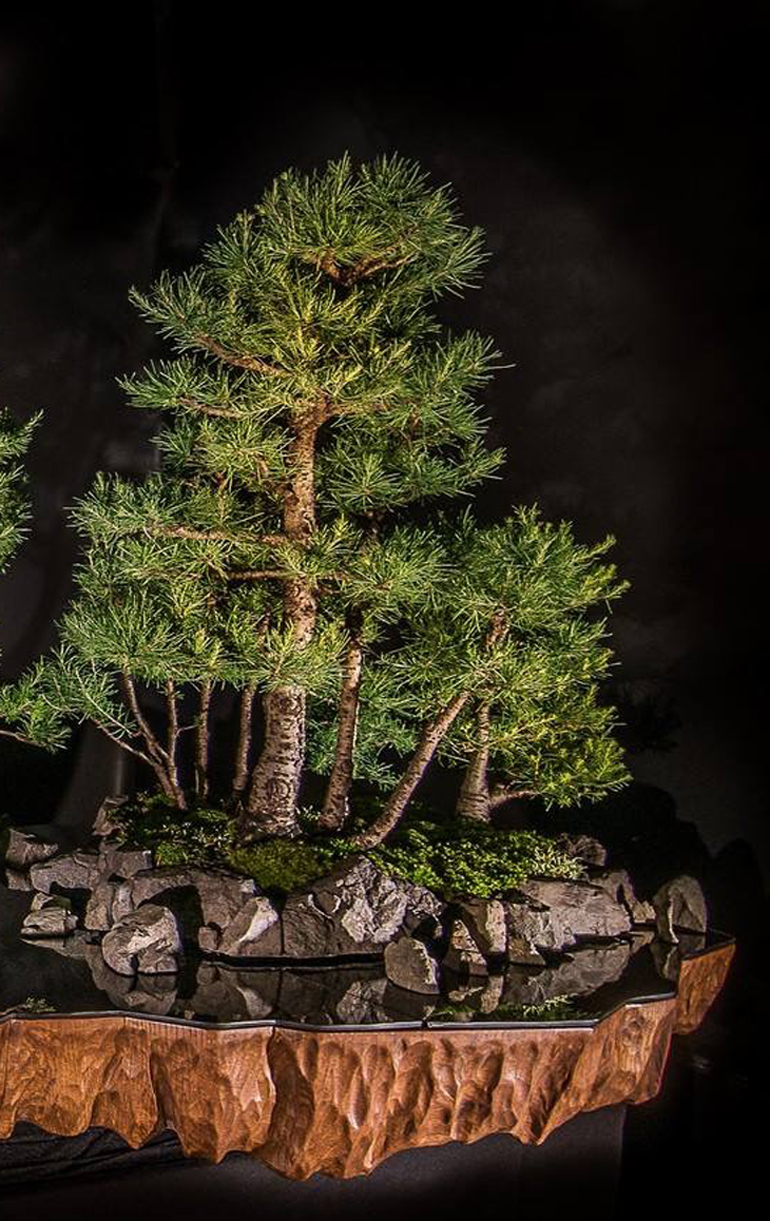
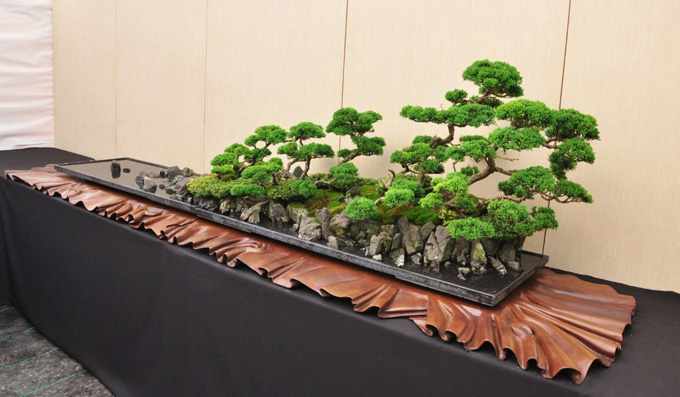
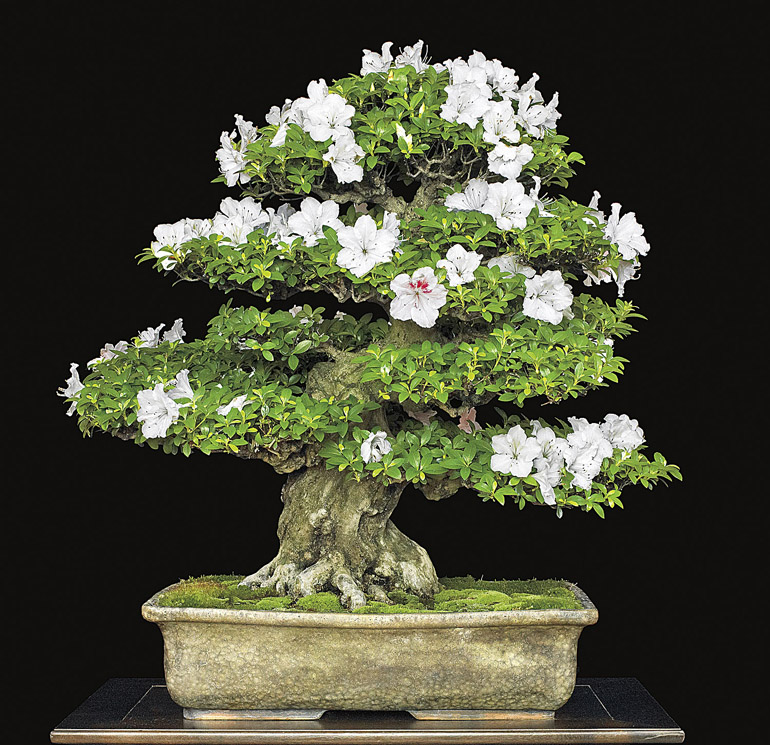 This sumptuous Satsuki is from
This sumptuous Satsuki is from 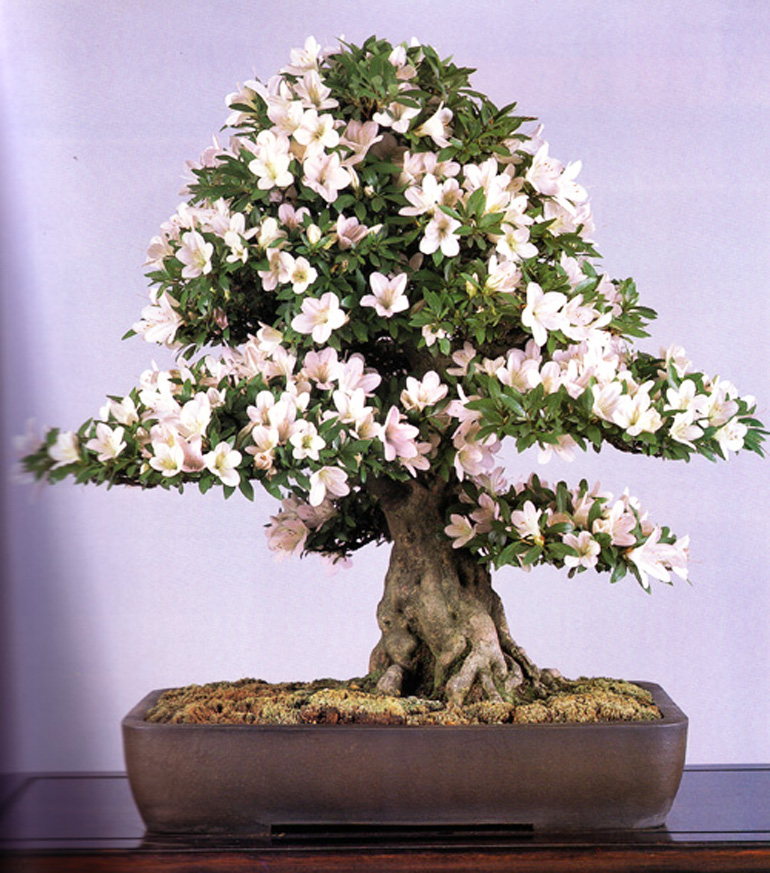 Here's another powerful Satsuki azalea that may have been field grown (it's from
Here's another powerful Satsuki azalea that may have been field grown (it's from 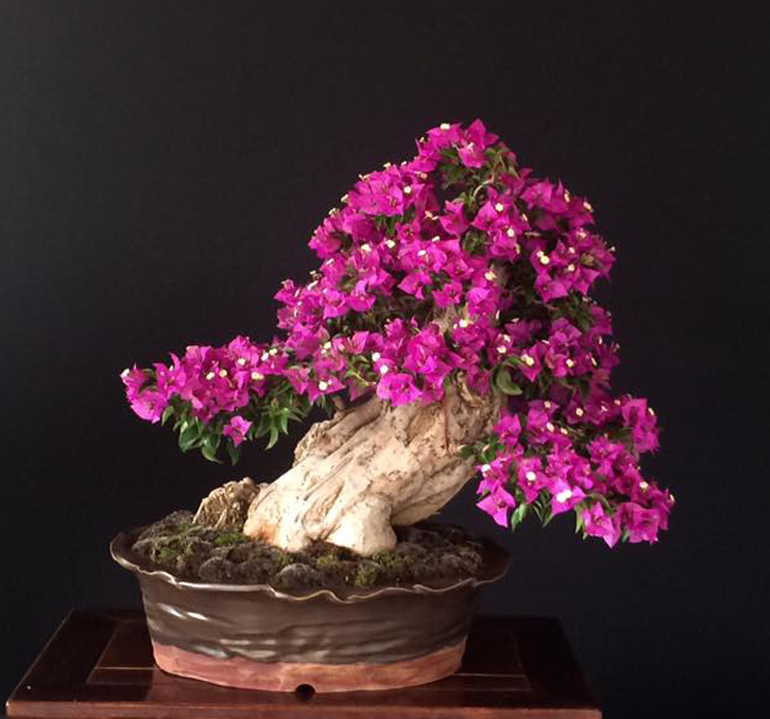
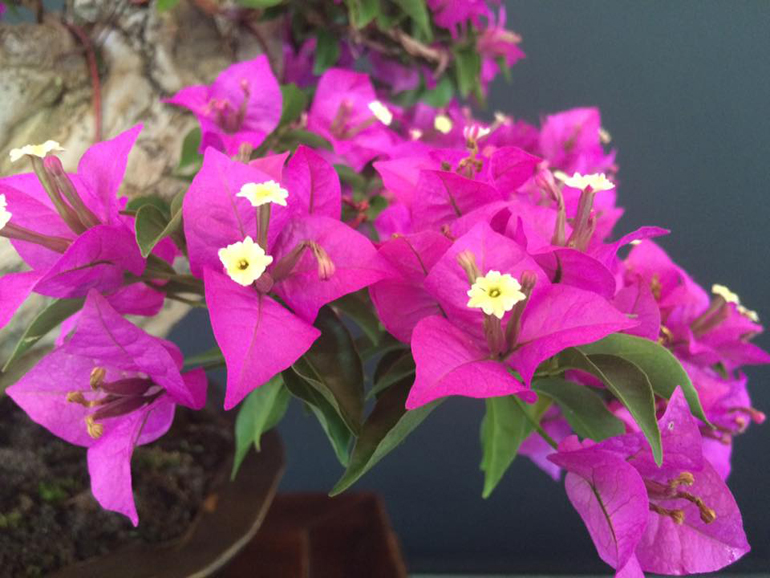
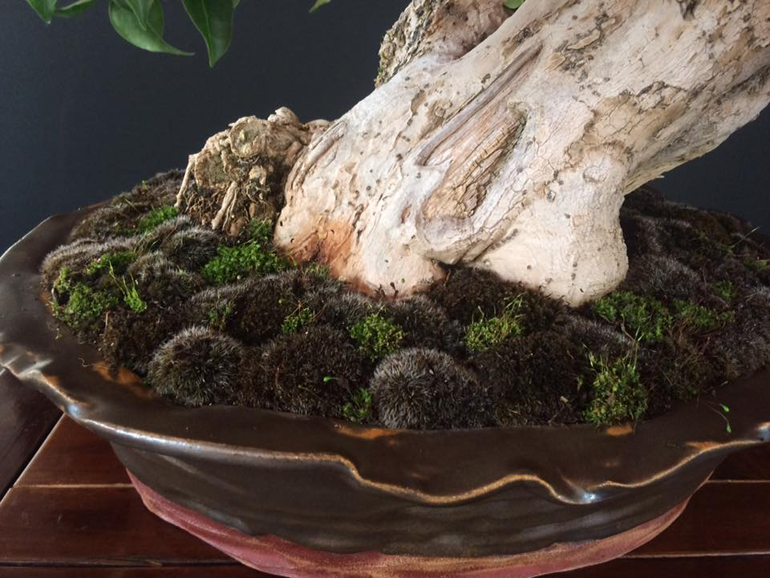
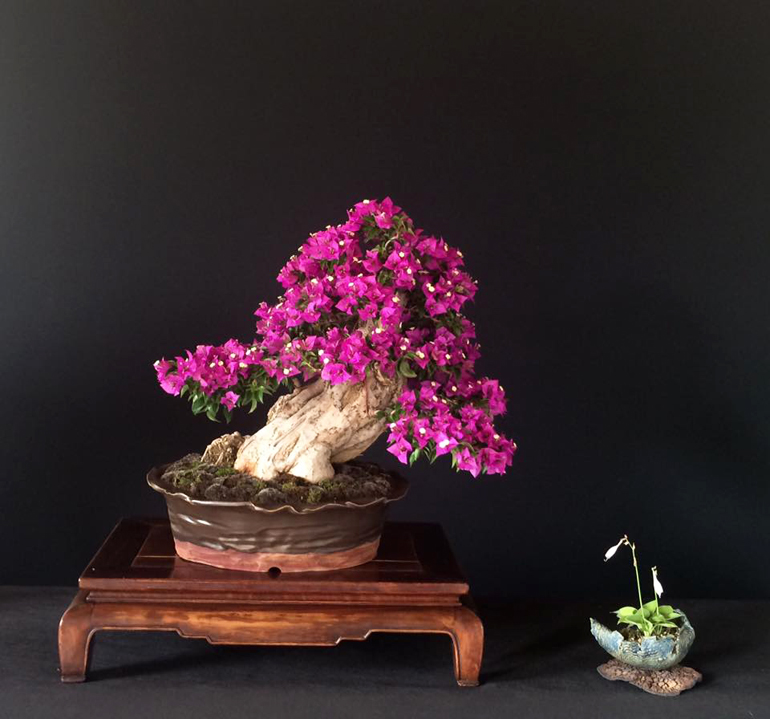
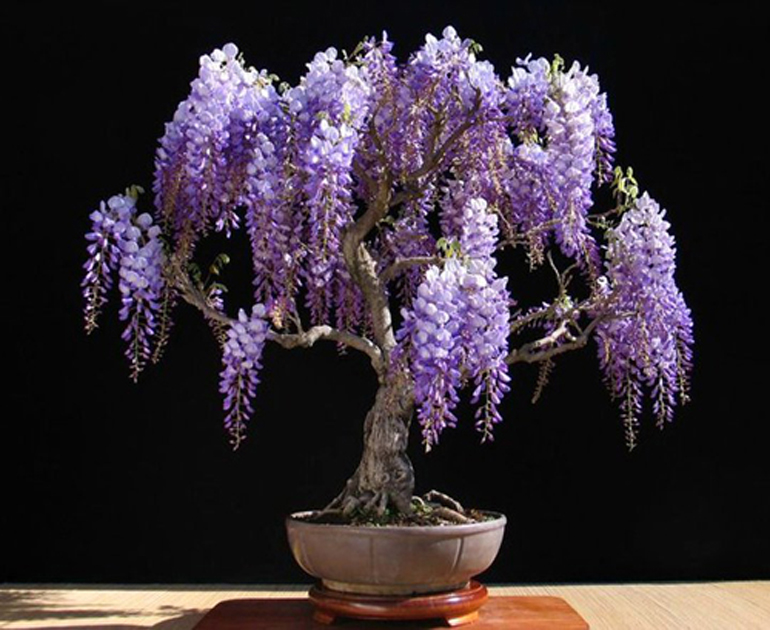
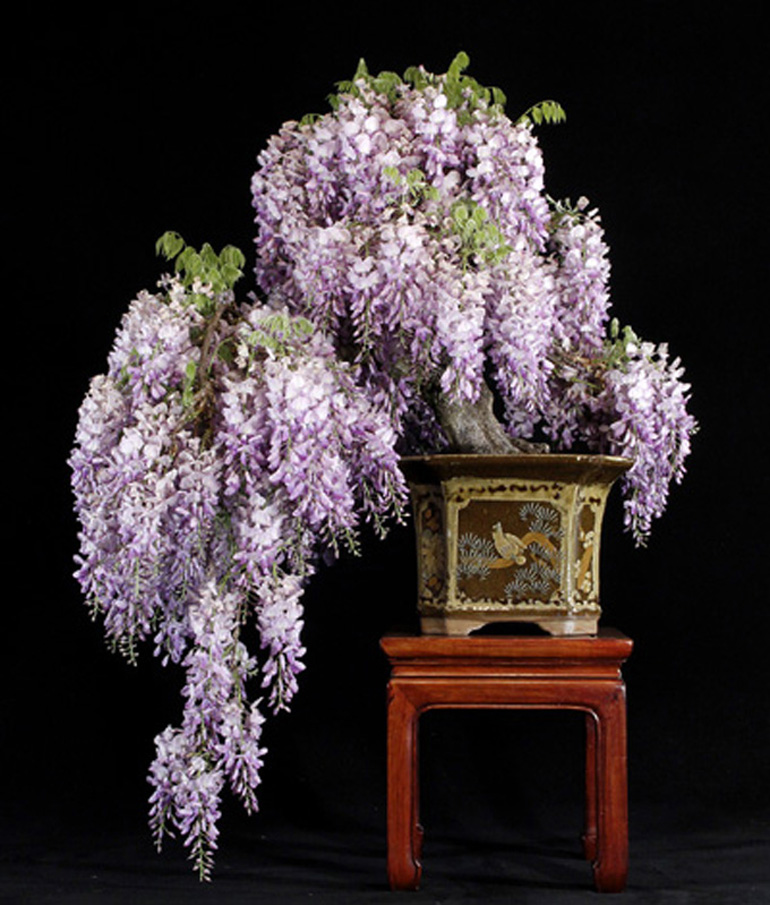
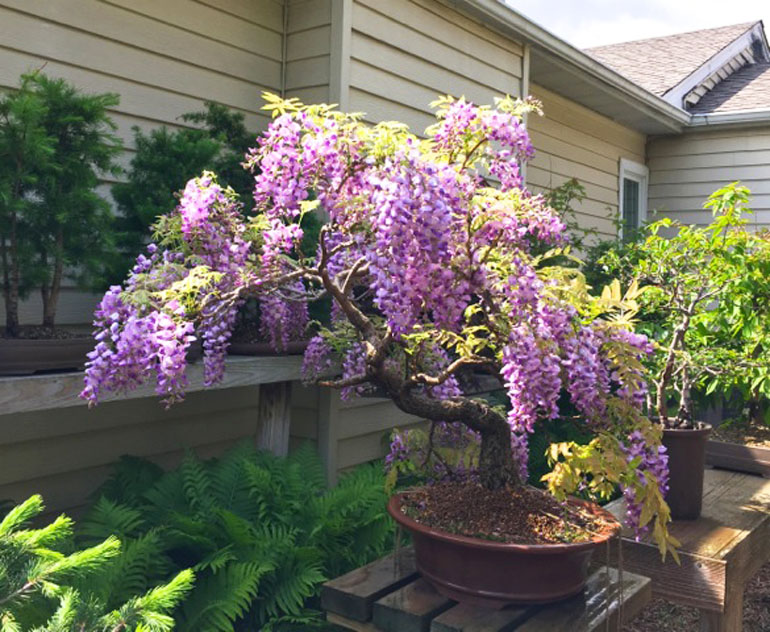
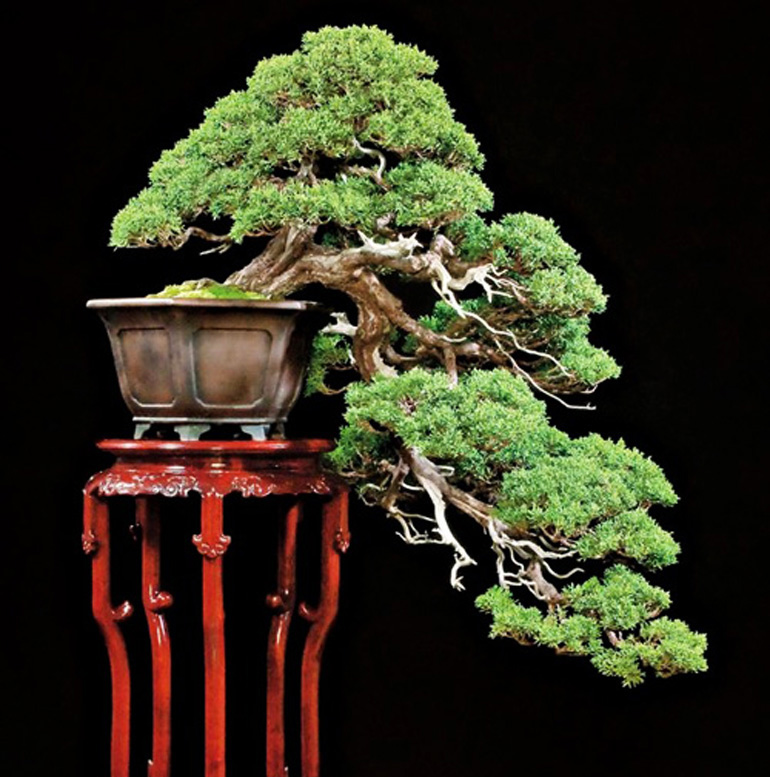
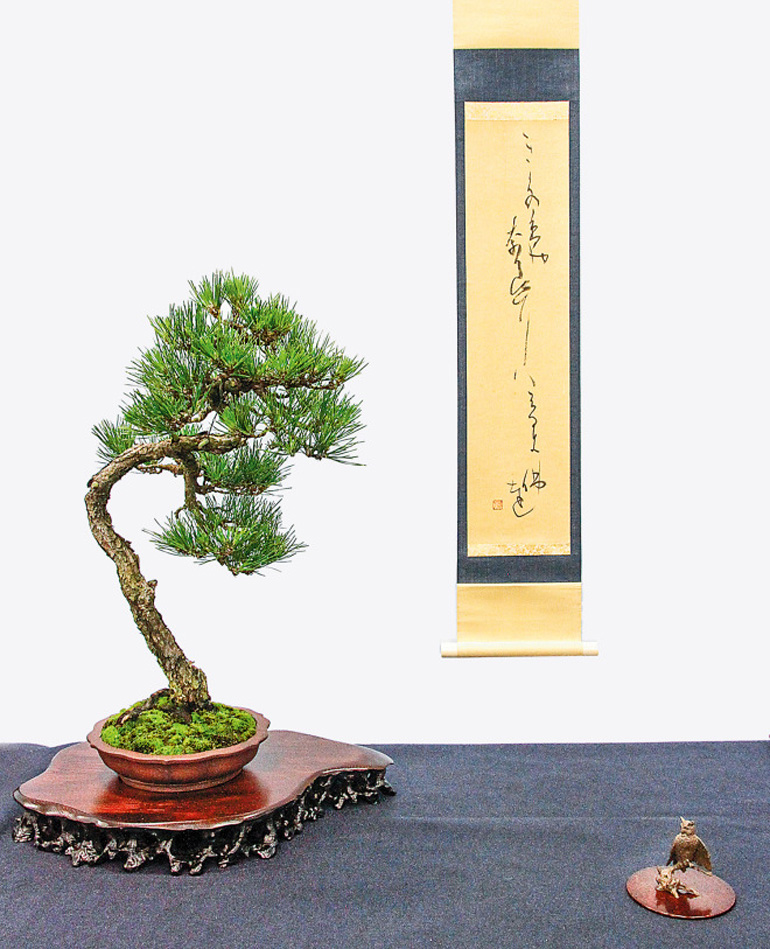
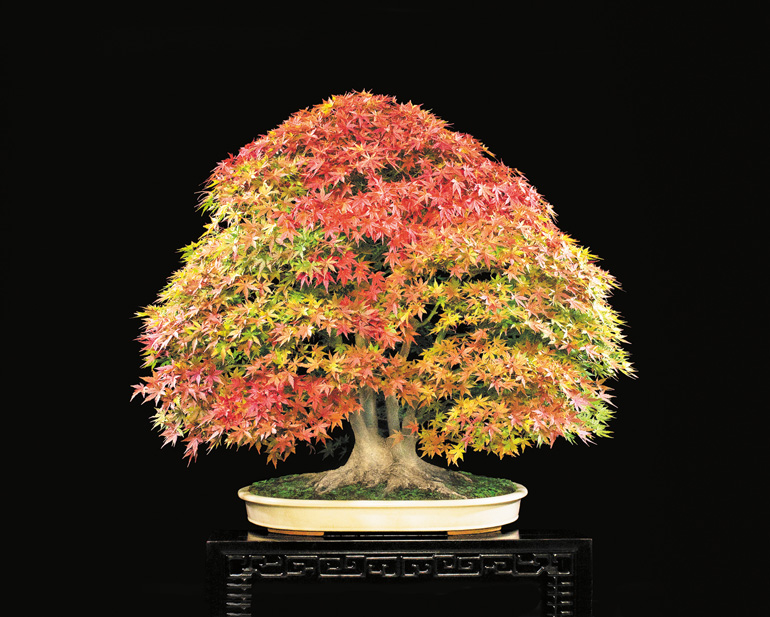
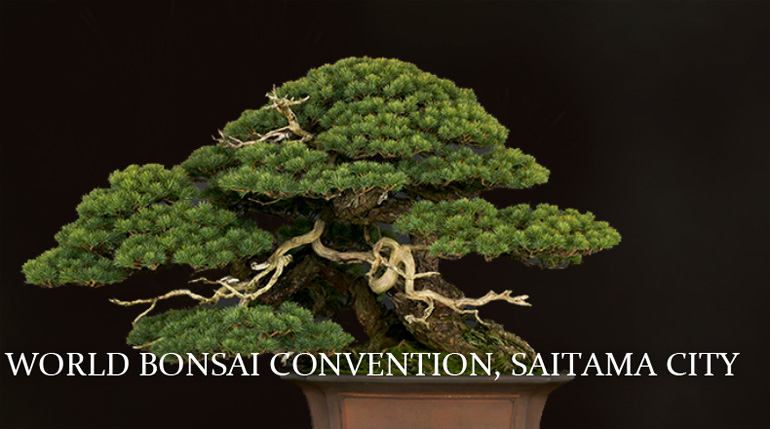
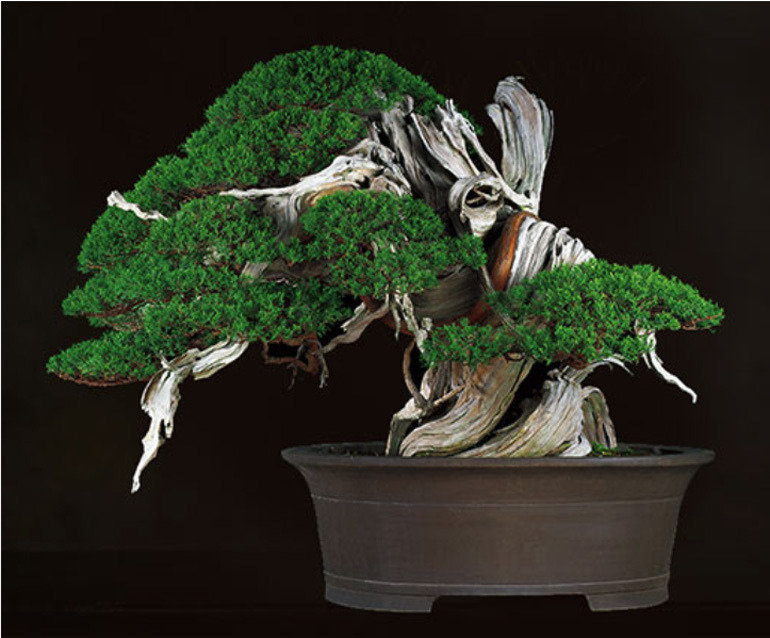
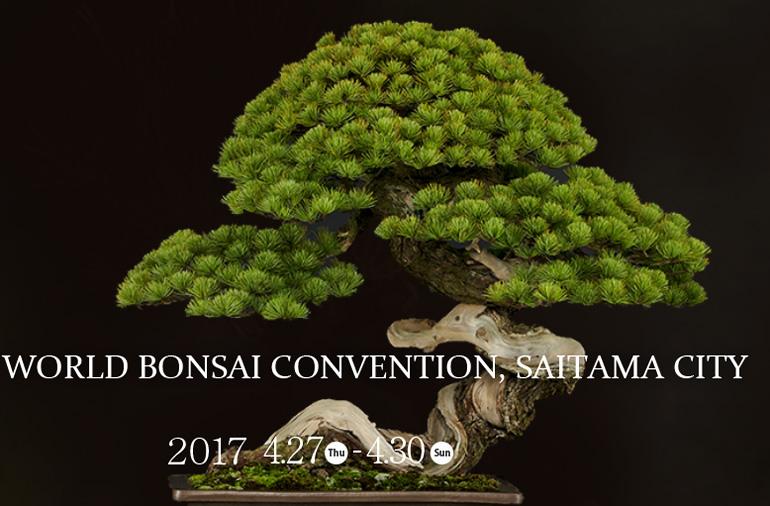

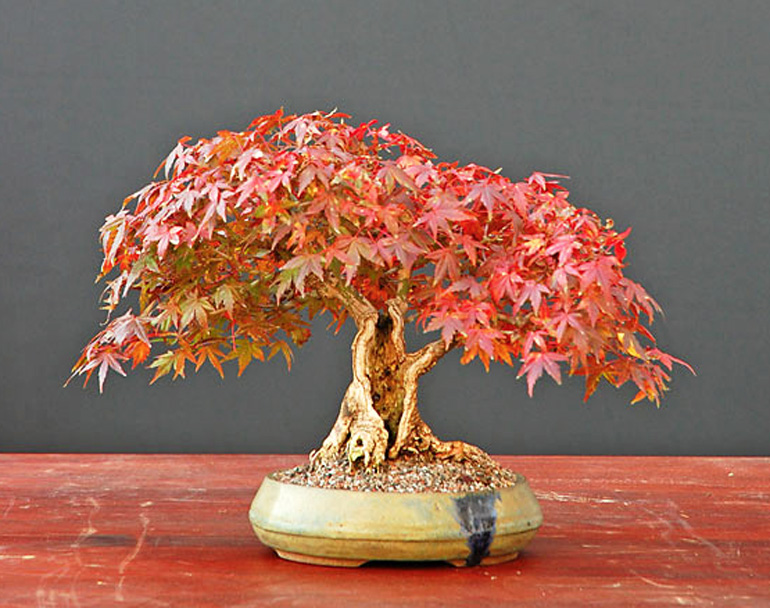
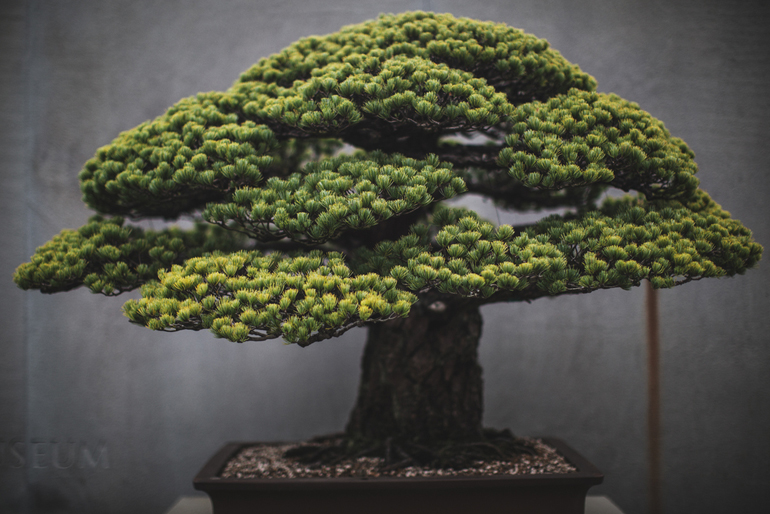
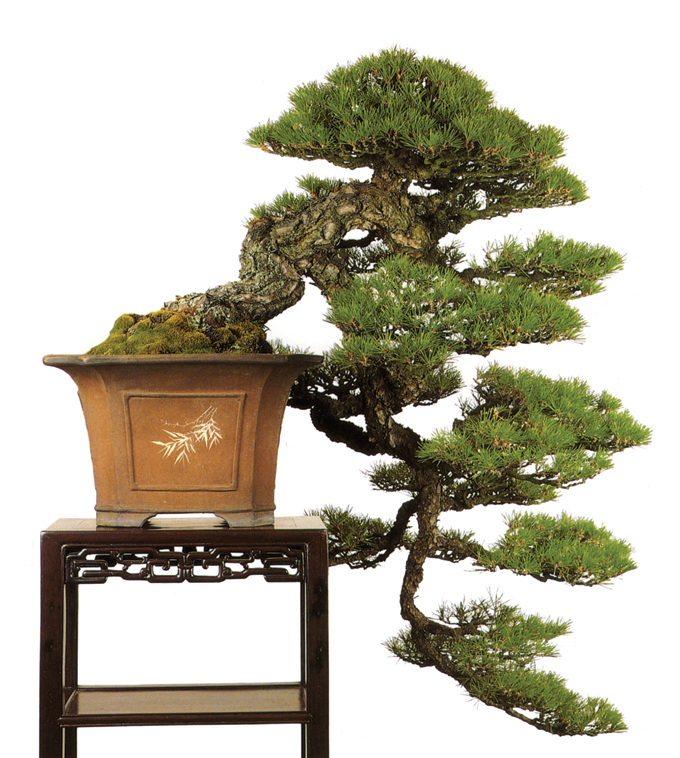 This powerful and well balanced cascading Japanese Black Pine is from our best selling bonsai book ever:
This powerful and well balanced cascading Japanese Black Pine is from our best selling bonsai book ever: 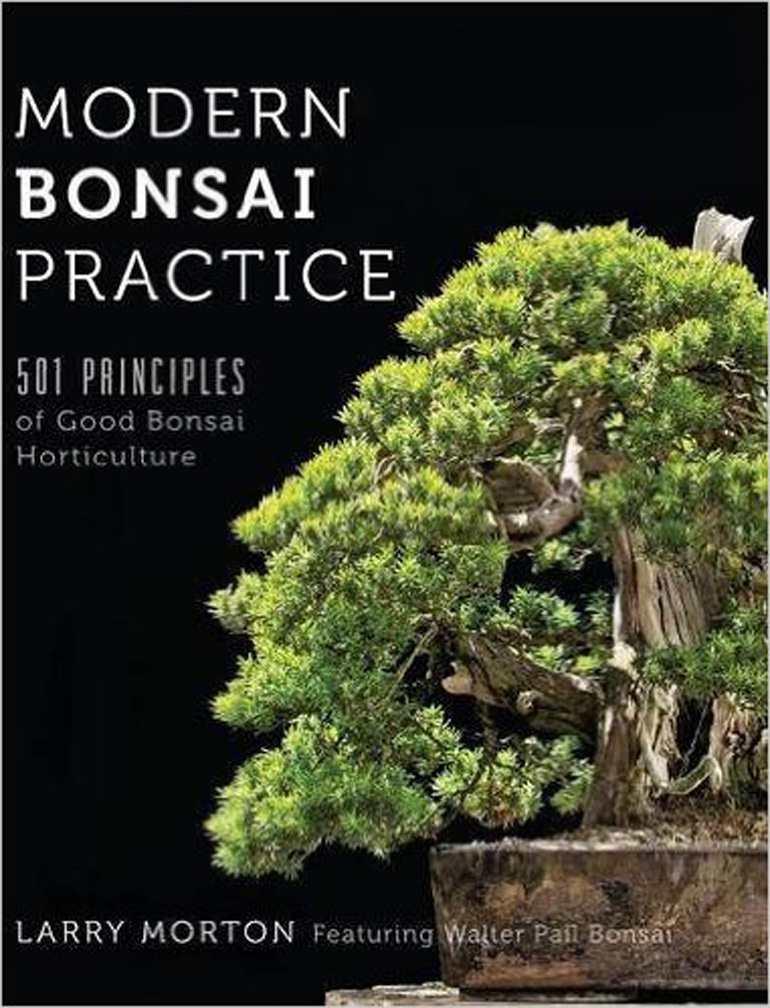 The cover of
The cover of 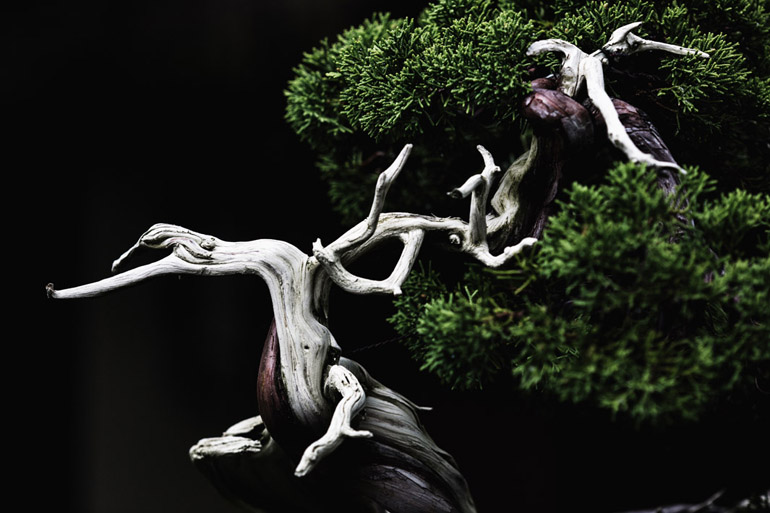
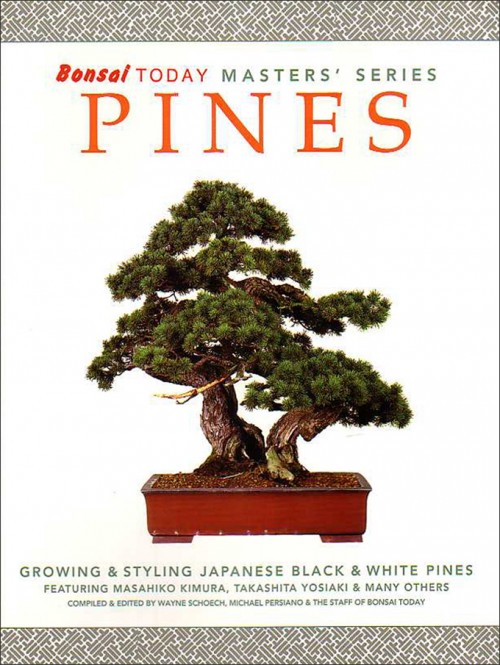
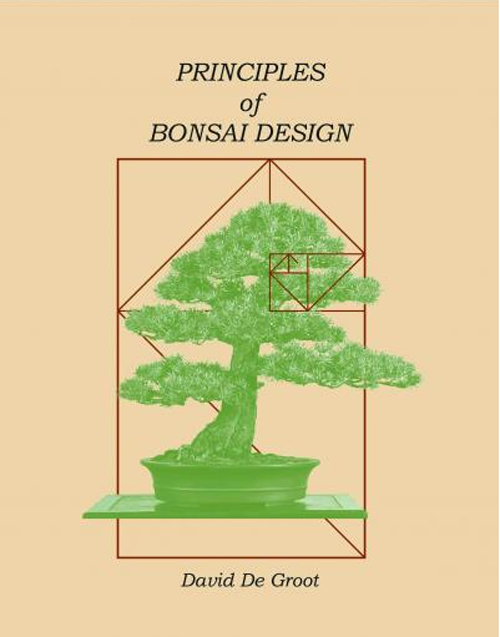
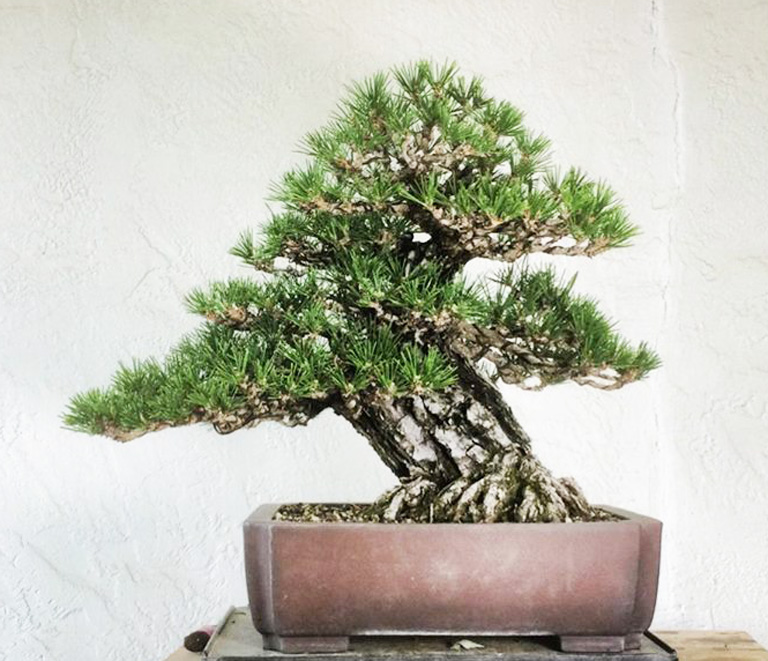
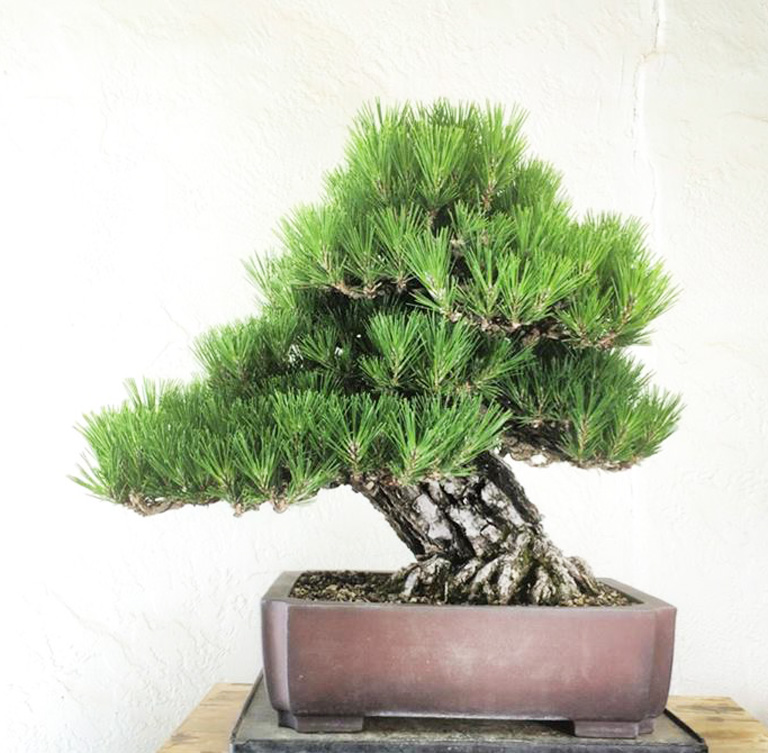
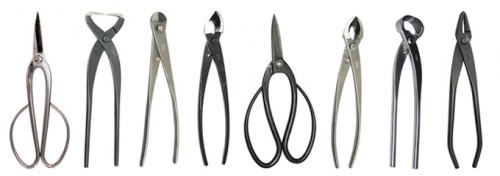
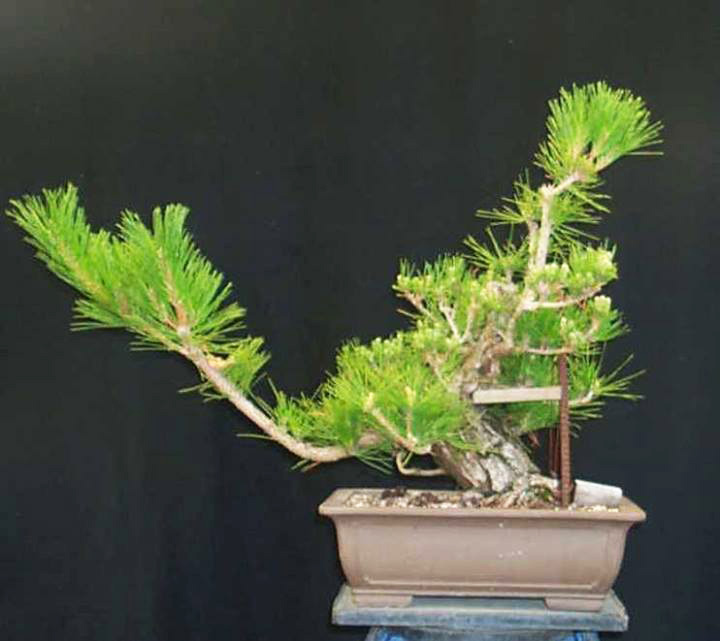
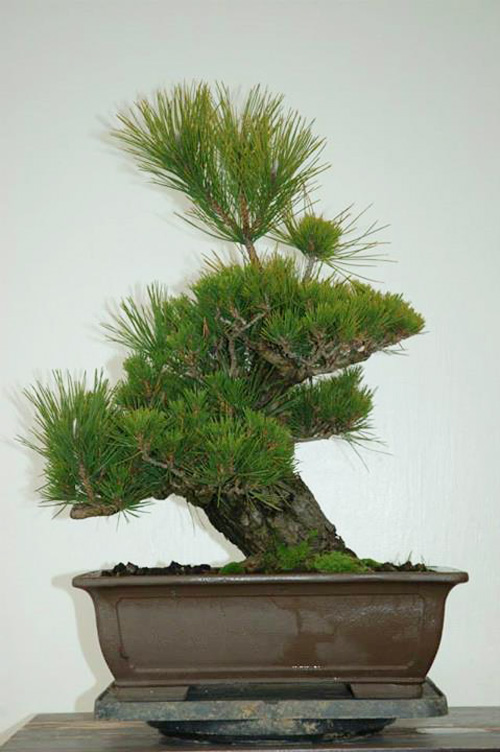 Shaping up. This one is labeled January 2005. At the risk of stating the obvious, you might notice the two sacrifice branches. They are there to strengthen the apex by drawing energy up.
Shaping up. This one is labeled January 2005. At the risk of stating the obvious, you might notice the two sacrifice branches. They are there to strengthen the apex by drawing energy up.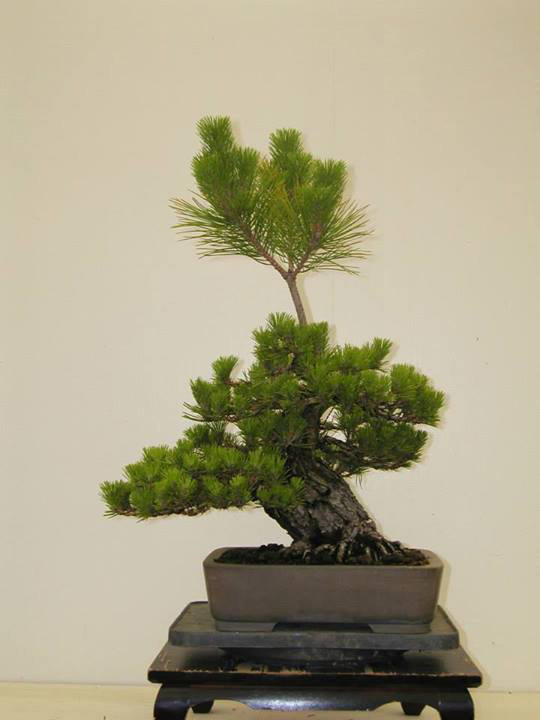
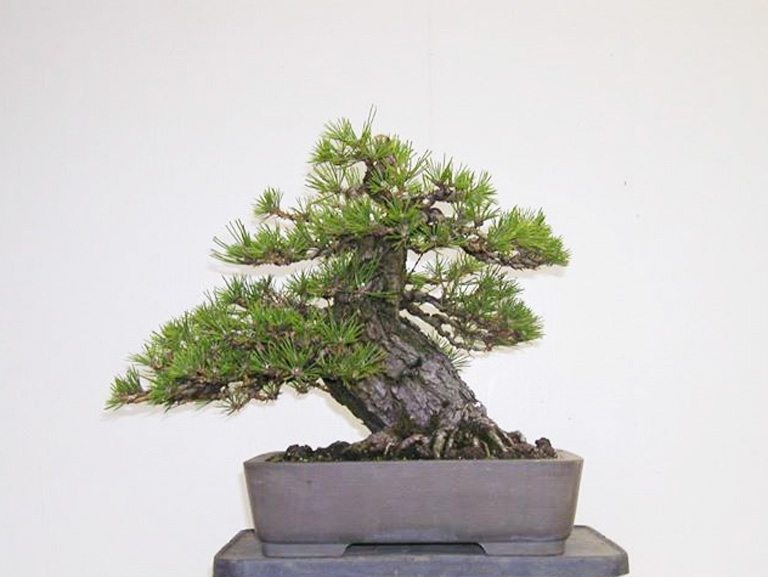 Back to the future. Boon labeled this August 2015. But upon cross examination he admitted that he was rushing the future.
Back to the future. Boon labeled this August 2015. But upon cross examination he admitted that he was rushing the future.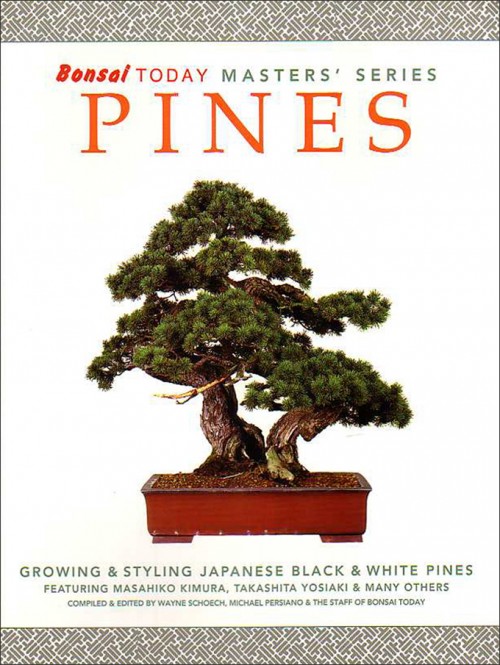
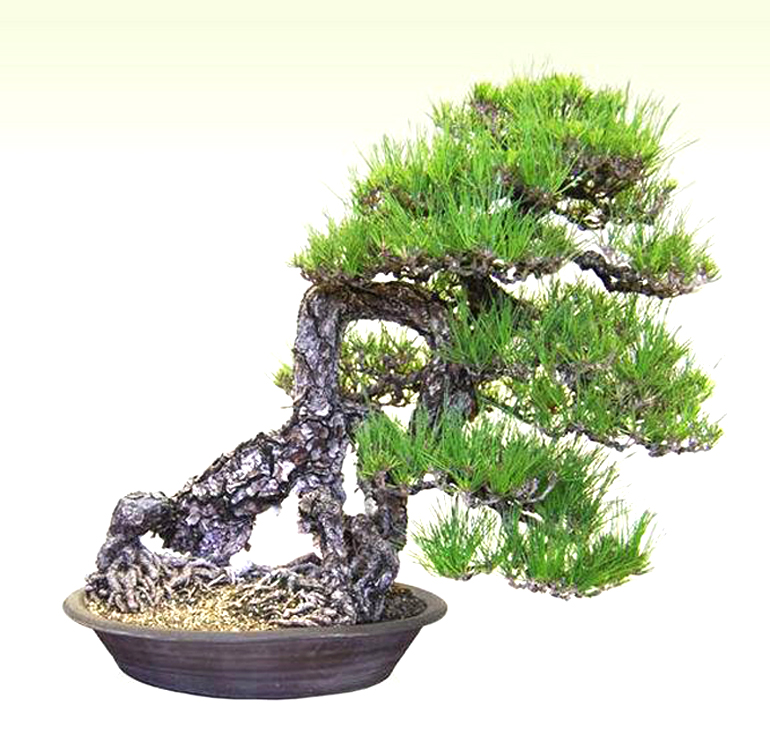 This has to be one of the most unique
This has to be one of the most unique 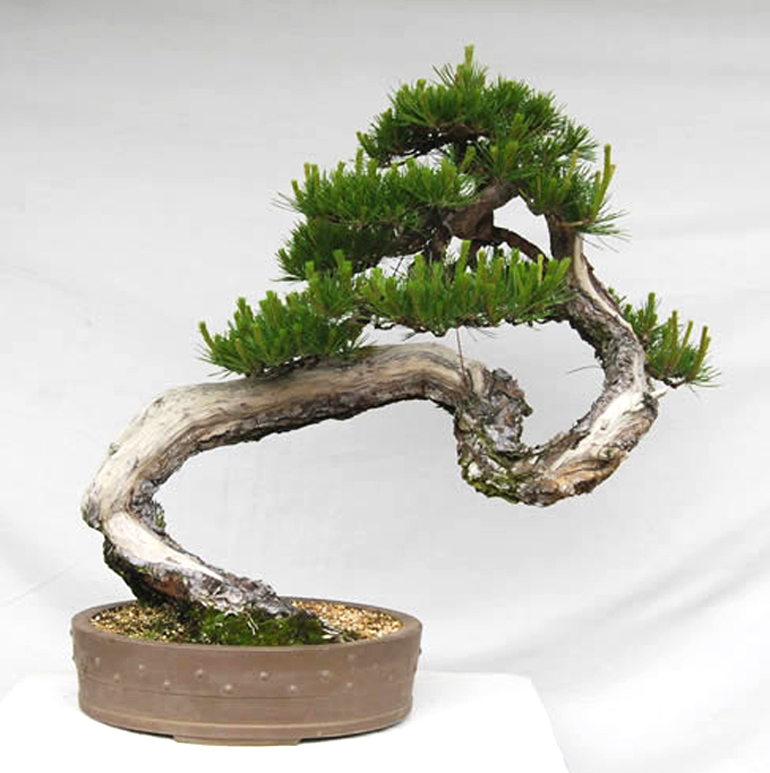 Snake. Looks like this was taken in the spring after Mr Ideue had plucked some candles and left some others where he wanted growth.
Snake. Looks like this was taken in the spring after Mr Ideue had plucked some candles and left some others where he wanted growth.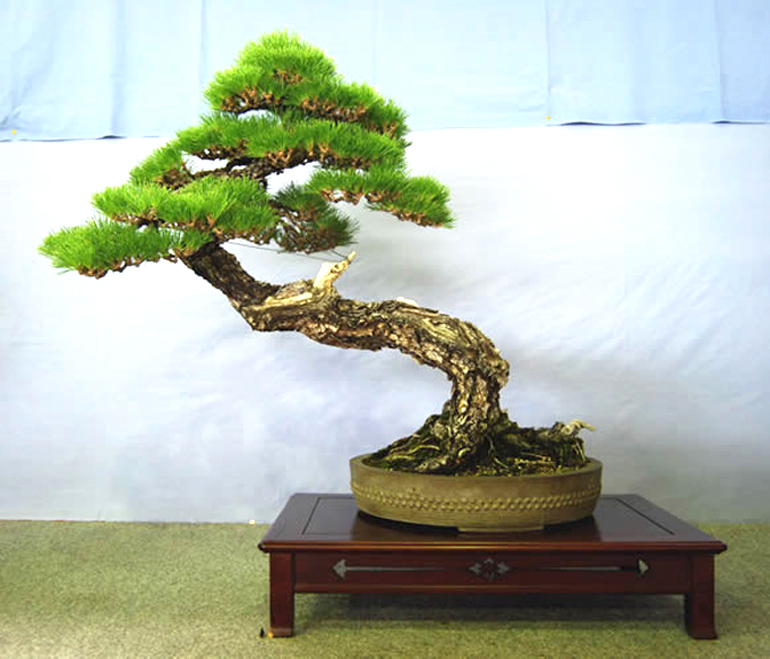 This is what a well-groomed Black pine looks like. Well balanced too, especially considering the strong lean to the left.
This is what a well-groomed Black pine looks like. Well balanced too, especially considering the strong lean to the left. This Stainless Concave Branch Cutter is one of
This Stainless Concave Branch Cutter is one of